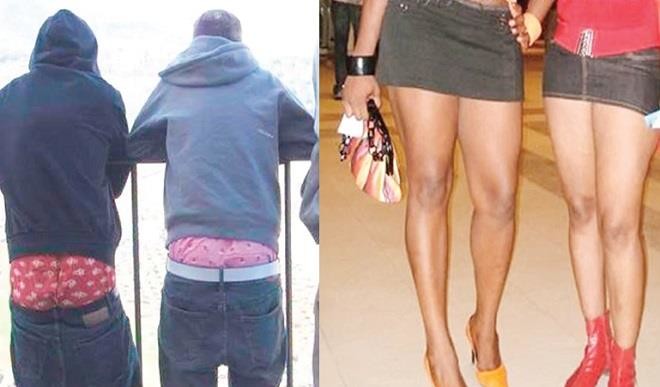THE recent decision by the Delta State Command of the Nigerian Police Force (NPF) to crack down on indecent dressing, particularly among the youth generated considerable public apprehension in the last two weeks.
Understandably, the social media were abuzz with reactions to a post reportedly made by the foremost law enforcement agency on its official X (formerly Twitter) handle, threatening a fine of N50,000 or community service for supposed offenders, while misinterpreting Section 16 of the Violence Against Persons Law (VAAP), 2020.
For the sake of clarity, Section 16 of the VAAP law deals with economic abuse, which refers to acts like withholding financial resources, controlling access to money or depriving someone (particularly dependents) of economic means as a form of control. Section 29, addresses the intentional exposure of private parts, either wholly or partly, in public and does not extend to clothing or fashion.
Regrettably, some police officers were reported to have thrown caution to the wind, intimidating and harassing citizens in obvious mix-up of the law; an action that negates their constitutional duty and amounts to gross human rights abuse by the police.
Almost immediately, the Delta State Government reacted, stating that while the VAAP Law 2020 criminalises certain acts that may be categorised as indecent exposure of private parts, the interpretation and application of the law rests exclusively with a court of law.
Through its Ministry of Justice, the government noted that no portion of the said law authorises the police or any other law enforcement agency to harass, arrest or punish citizens based on their dress or appearance, urging security agencies to exercise restraints and professionalism in the discharge of their duties and to respect the constitutional rights of citizens.
We commend the timely intervention of the justice ministry, which, as the repository of laws, has allayed fears amongst the citizenry of an upsurge in human rights violations by law enforcement agencies in the state. This strongly demonstrates its democratic disposition towards ensuring human dignity, as captured in Section 37 of the 1999 Constitution, as amended.
While we do not condone indecent dressing in any form, we condemn the idea of trampling on the rights of citizens, particularly youngsters. If the police are disturbed by the prevalence of indecent dressing in society, they could intervene through moral suasion and not by strict enforcement. More so, the definition of indecent dressing is still largely vague and debatable in society.
We are averse to the posture of the police as an accuser and judge at the same time. It’s unlawful for the police to arrest people and impose a fine without prior arraignment, trial, and sanction by the law courts. We are not unmindful of the possibility that those who are accused of indecent dressing would not be given a fair hearing, as such a scenario is akin to subjecting roaches in a quasi-judicial forum presided over by a hen. Indeed, there is no hope for justice in such court.
Therefore, the police authorities should exercise greater circumspection in making announcements that could breach the rights of the citizens. Granted, we do not support indecent dressing, but we will always go against any covert or overt initiative by any institution to abuse the rights of citizens under the guise of promoting public morality.
At this juncture, a word for legal drafters is an imperative. The police might have been overzealous in its interpretation of the law, but this was probably enabled by the ambiguity or inchoate nature of such headings as ‘’indecent dressing’’ and ‘’indecent exposure’’ which at first glance means the same thing.
While ignorance of the law is not an excuse, we believe that a saner society devoid of human rights violations is possible when a greater majority of the people are conversant with the provisions of the law and abide by it.


